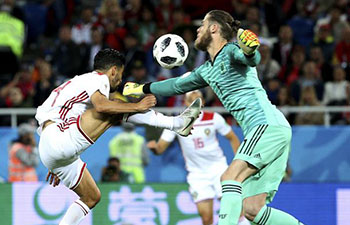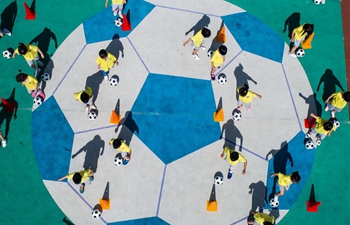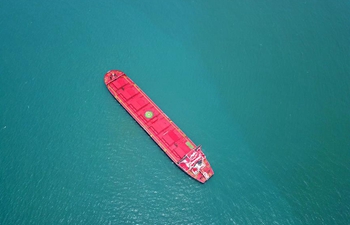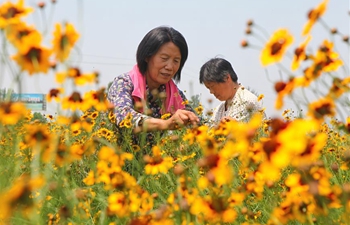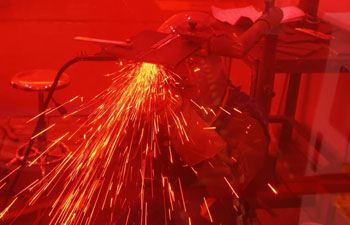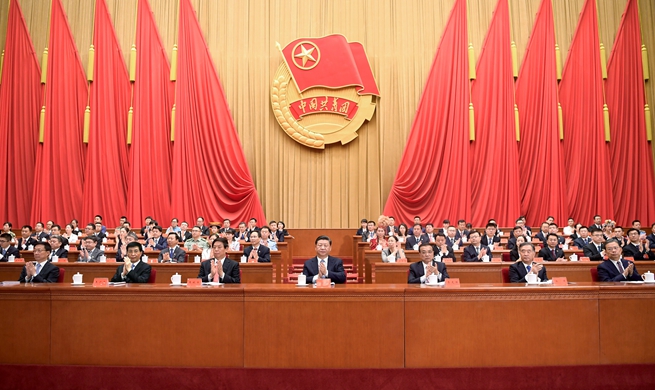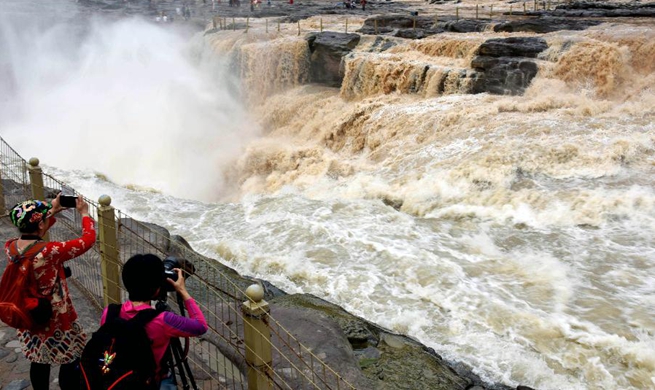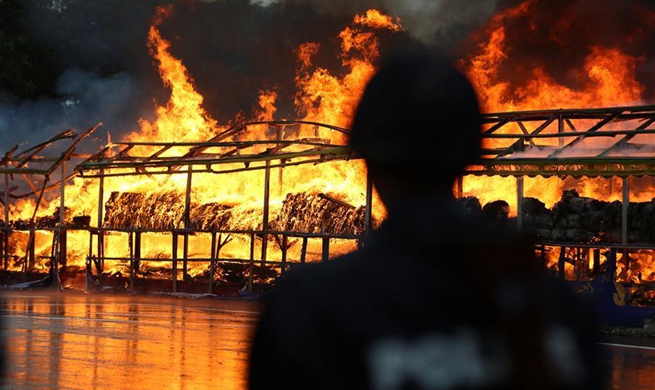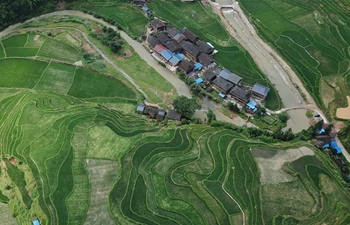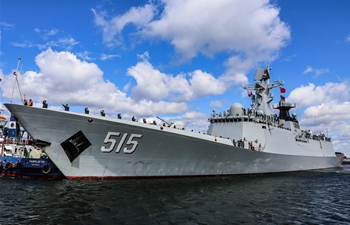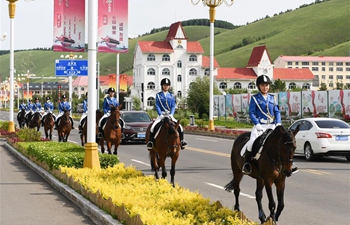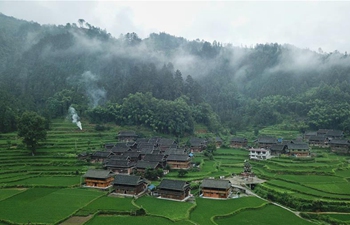PARIS, June 26 (Xinhua) -- Strongly shaken in recent days by a strong polemic on the management of refugees -- those who are rescued at sea by NGOs as well as those who are already in Europe -- the European Union (EU), which held a mini summit on Sunday in Brussels, is struggling to find a solution to the ongoing migration challenge.
The refusal of Italian Interior Minister Matteo Salvini to allow the humanitarian ship Aquarius transporting 630 migrants to dock at Italy's ports, and the threats of his German counterpart Horst Seehofer, who is leaning on German Chancellor Angela Merkel to toughen migration policy, have recently relaunched the debate on Europe's management of migrants.
The emergency mini summit organized Sunday by the European Commission to iron out positions did not lead to a solution to the migration question. The participants agree on certain points, like the reinforcement of Frontex -- the EU agency responsible for enforcing external borders of the bloc -- and the improvement of the work being done with third countries and transit countries to become more efficient in processing asylum claims. However, there was no agreement when it came to taking responsibility for migrants themselves.
This scenario was predicted by several specialists, notably due to the absence of some principal players in the crisis. "You can't expect a European result from this mini summit, with the countries who stayed away from this meeting (Eastern and Central Europe) because they are in very hard positions on the theme of refugees and burden sharing between different European countries," said Catherine Wihtol de Wenden, director of research at the French National Center for Scientific Research (CNRS), on CNews station.
Salvini and Seehofer were absent from the summit.
"There is a blockage and we cannot unblock it when the principal players in the crisis are excluded from the negotiating table. We do not want to hear the interior ministers of Germany and Italy speak. And yet this crisis is no longer on migration, it is on internal politics. To exclude these two players is to forbid ourselves from resolving the crisis," argued Benjamin Morel, a political scientist at Ecole Normale Superieure on La Chaine Info (LCI) television.
Two camps within the EU are overtly opposing one another over the migration crisis. On one side, Western European countries such as France, Germany and Spain, champion a policy of respect for European values like the right to asylum, and on the other, the camp composed primarily of Eastern and Central European countries, as well as Italy, believe in closing borders and strict security measures.
Wihtol de Wenden said this calling into question of the values of solidarity -- the founding values of the EU -- comes from a rise of the extreme right in Europe. "Today, in many European countries, including Italy, the extreme right has managed to impose an intellectual conformism on the themes of migration and refugees," she said.
The question remains whether French President Emmanuel Macron and his allies, notably Germany, could reverse this extremist dynamic at the heart of the EU.
The president of European Movement France, Yves Bertoncini, faced with this situation, the Franco-German alliance is more necessary than ever, but will be insufficient.
"It was two large countries in a Europe of 28 which were first fractured by the crisis in the euro zone, then by the refugee crisis. Thus, it is good that the French and the Germans could put themselves in agreement on a road map, but they will never arrive at the European Council next week on conquered ground. They will have multiple oppositions as much on the subject of the euro zone as on that of refugees," he warned on CNews.
The position of Macron, who sees himself as Europe's spearhead against populism, does not favor a way out of the crisis, thinks Morel. "Macron is in a struggle which is much more political. He is already in the European legislative campaign where he sees himself as Europe's spearhead against populism. And the offensive discourse that he makes is preventing him from having dialogues and from having solutions," Morel said.
